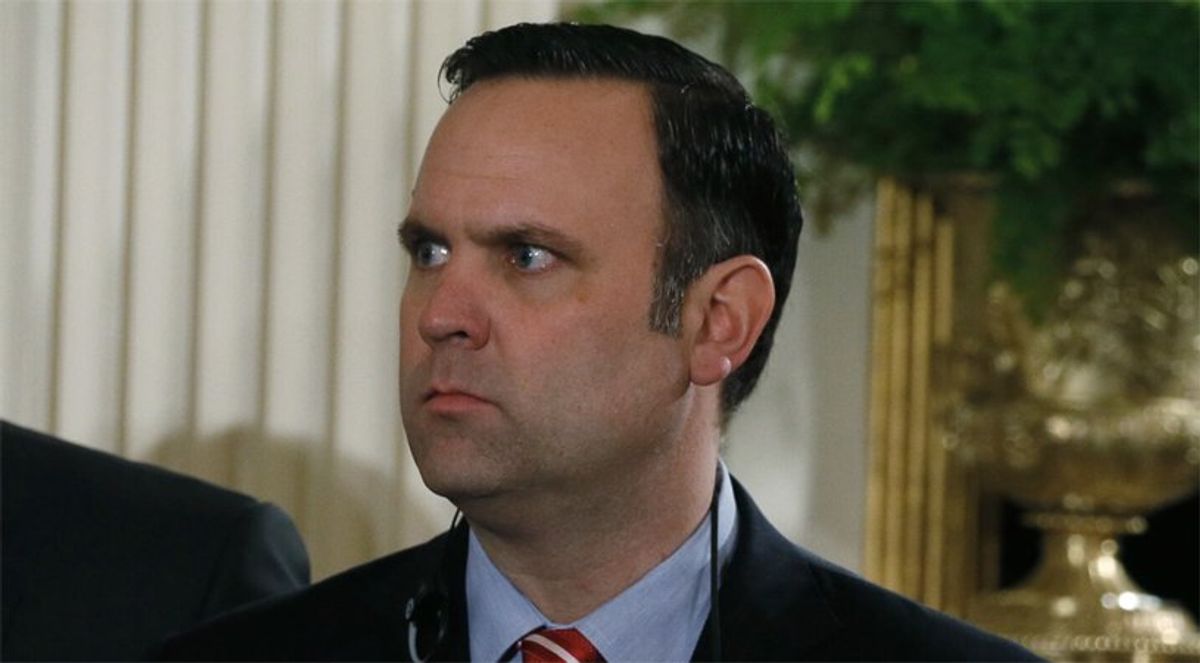
With his re-election as president killing off any criminal charges he was facing for inciting the Jan. 6 insurrection that forced lawmakers from both sides of the aisle to flee for their lives, Donald Trump still faces what could be costly civil lawsuits filed by Capitol police and some of those same lawmakers.
As part of those suits, lawyers representing those still pursuing the president submitted in February a 55-page court filing containing 186 exhibits that are currently under seal. They've led lawyers for one key Trump aide to make the case that three of those exhibits need to remain hidden from public scrutiny to save him from embarrassment.
According to a report from NOTUS, lawyers for Trump's longtime "social media guru," Dan Scavino, are making the case that info in the three include “confidential executive branch information” from Trump's first term which should be "covered by a judicial protective order in the case."
ALSO READ:'Not much I can do': GOP senator gives up fight against Trump's tariffs
As Jose Pagliery wrote for NOTUS, "The bulk of his argument for keeping it secret rests on the idea that whatever is in those exhibits would be embarrassing, with his lawyer relying on legal precedent stemming from a 1980 case that frowned upon the way a lower court judge released records in a case involving the government seizure of some 50,000 documents from the Church of Scientology in Los Angeles."
With the report noting that some of the disputed material "appears to be the same evidence Scavino turned over to the Department of Justice during the federal grand jury that investigated the Jan. 6 insurrection," Scavino's legal team has asserted, "Courts have noted that exposure to potential ‘public humiliation and degradation’ can satisfy this factor."
According to Scavino attorney Mark P. Nobile, "The current political climate and the observable news cycles over the last nine years have demonstrated that revealing inoffensive details about one’s involvement with President Trump’s administration, particularly in the matters discussed in the sealed exhibits, would likely to lead to public degradation."
In response opposing counsel Edward G. Caspar wrote, "His argument borders on frivolous. Were it so, then surely [Scavino] would not have agreed to serve as an official senior advisor to President Trump in his second term."




